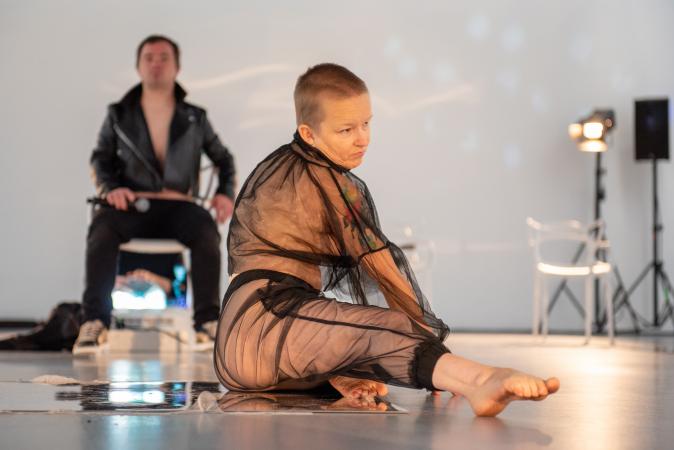
Katarzyna Żeglicka is a queer disabled performer, dancer, choreographer and self-defence trainer, and one of a new generation of disabled artists who are challenging ableism in the performing arts. Katarzyna was one of the artists chosen for the fourth Europe Beyond Access artist laboratory The dramaturgy of movement transitions, which took place in Italy in September 2021 and was hosted by our project partner Oriente Occidente.
In this article, Katarzyna explores the intersection of dance and disability through the lens of her experience at the artist laboratory. She reflects on the difference in the impact of ‘non-normative’ vs. ‘normative’ bodies on the dramaturgy of a performance, as well as on audience perceptions and interpretations of the work, particularly in the case of spectators with preconceived stereotypes and prejudices around disability.
Katarzyna also addresses issues around teamwork and communication between disabled and non-disabled artists, emphasising the importance of collaborating as equals in a non-hierarchical way through open and inclusive dialogue, and a continuous process of awareness raising among all members of the team.
She strongly advocates for the utilisation of a wide variety of communication methods, channels and tools – including but not restricted to accessible language and avoidance of jargon, spoken language, simultaneous interpretation, written language, sign language and assistive technology – to empower disabled artists and maximise their participation in and contribution to the creative process.
*Read Katarzyna’s article in English or its original Polish version, available on the taniecPOLSKA webpage.
*You can also watch her artist’s profile below.

